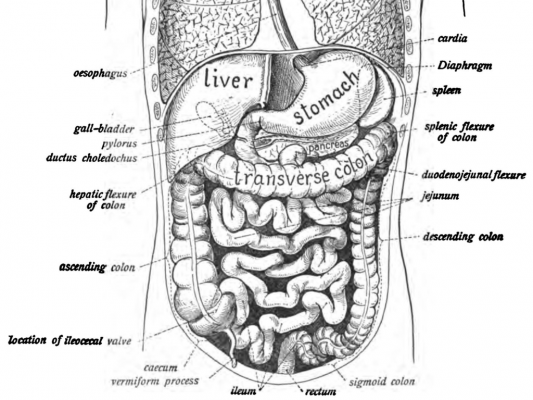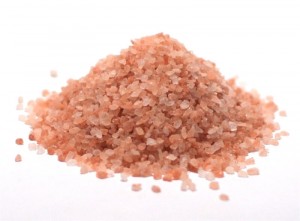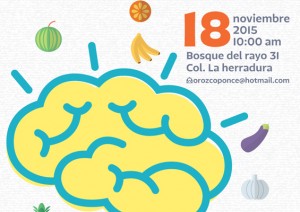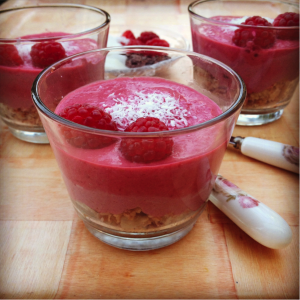
1. Drink more water
There’s a rough formula to follow in order to fulfill your body’s daily requirement for water. Take half of your body weight, as expressed in pounds, and drink that number of ounces of water each day. For example, someone who weighs 160lbs should drink a minimum of 80oz (2.5quarts) of water a day. If you prefer using kilograms and milliliters, take your weight as expressed in kilograms and increase it by approximately 10%, and drink that number of ounces of water per day; to convert ounces to milliliters, multiply x30. So, that same person who weighed 160 lbs weighs 72 kg. Increase that number by 10% and you now have 79kg. That person should drink 79oz/ 2400 ml/2.4Liters of water per day.
It is best to drink the majority of your water between meals, not during, so as not to interfere with the digestion of your food. Drinking 1-2 large glasses first thing in the morning is an especially good idea – and if you drink it warm (closer to the temperature of the interior of your body) and add the juice of ½ lemon, your body will say “thank you…that is a very satisfying early morning beverage!”
2. Decrease markedly (better yet, eliminate) all the refined, processed and fast food in your diet and increase your vegetables
This will result in more fiber and more nutrients. Eating a large salad of a variety of raw veggies once or twice a day is a great habit. Make your own salad dressing from extra virgin olive oil and lemon juice or vinegar – add some fresh herbs, garlic, mustard for a change in taste.
Cruciferous vegetables (cabbages, broccoli, cauliflower, kale, collard greens, Brussel sprouts, mustard greens, rutabagas, turnips, radishes) are wonderful, nutrient-dense vegetables but need to be cooked. They contain goitrogenic compounds that increase one’s need for iodine and, if consumed in large enough quantities (raw), can inhibit thyroid function. Try to have 1-2 servings a day of these special veggies (cooked), but don’t add them raw to your salad.
If your current diet is low in fiber, it might be best to increase your veggies slowly – especially the raw ones. Cellulose is a fiber that makes up a good portion of the cell wall within plant foods, giving them rigidity and structure. Our pancreas (source of most of our enzymes which are used to digest our food) does not produce enzymes to break down cellulose, but cooking (and fermentation) softens and predigests the cellulose, making it easier for the digestive system to handle.
Human anatomy is not designed to digest too much cellulose, the way plant-focused animals are – animals such as ruminants (cows, goats) and gorillas. However, the good news is that, although the pancreas does not produce enzymes to digest cellulose, the healthy bacteria in our guts do!
Which brings me to the third suggestion…
3. Take a good quality probiotic supplement
A probiotic supplement contains the good bacteria that should be residing in high numbers within our intestines. These beneficial bacteria produce the enzyme cellulase that can digest the cellulose in all those veggies that are so good for us. They also perform dozens or hundreds of other important functions – mainly of them related to the digestion and absorption of nutrients from the food that we eat.
However, many of us do not have enough of the good guys in our digestive systems and taking a probiotic supplement can often result in immediate improvement of constipation as well as other GI issues like bloating, gas, reflux. Follow the directions on the label as to amount and time of day to take it. I usually suggest starting with 1 capsule taken at bedtime.
4. Eliminate dairy (milk-based foods) – from all animals (cow, sheep, goat, etc)
This means milk, cheeses, ice cream, sour cream, yogurt, and even butter for very sensitive individuals. Dairy products have a reputation for causing constipation in those individuals who are having a difficult time digesting them. If you have access to raw (unpasteurized) dairy, do try this, as raw dairy will have its own supply of enzymes to digest the various components in the milk or milk product. Pasteurization involves high heat that destroys these enzymes. If you can’t obtain raw dairy, completely eliminate all dairy foods from your diet for one week and see what happens. (You may even find that other troublesome symptoms have disappeared.)
5. Eliminate wheat and all gluten-containing grains (rye, barley, spelt, triticale, kamut)
Gluten is a protein that is found in the above grains, and as in the above example with dairy, many people are having difficulty digesting it and constipation can be one of the consequences. Eliminate ALL wheat and gluten for one week, and observe the results. Again, as with dairy, you may find that other troublesome symptoms have also resolved.
I’ll have another posting in the next few weeks with additional approaches to try. If you have any suggestions for something that has worked for you, please let us know!




